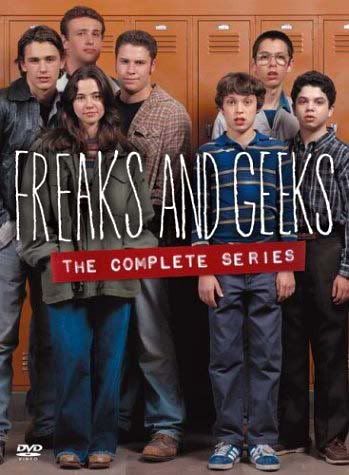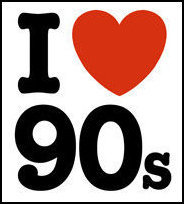
Have you ever been watching a cartoon and thought to yourself, "Huh, I wonder what these comically misshapen characters would look like in real life"? If so, then this next bunch is for you. Apparently movie studios believed this to be a relatively common ponderance in the 90s and supplied us with many, many live action movie versions of our cartoon favorites.
In some cases, they probably could have left the cartoon-to-real-life translation to the safer confines of our imagination, but there were a few breakout hits in the bunch. These may not have been Oscar contenders, but they were a fun bunch of family-friendly films. That's the best part about marketing movies toward kids: they like anything. Really. I walked past a screening of Old Dogs last week and heard rampant child laughter. Clearly not a sign of superior judgment and discerning taste.
Whether they struck a chord with audiences or bombed big time, the live action take on a cartoon was a pretty widespread phenomenon. Some of the most-watched examples include:
George of the Jungle
That's some catchy theme song, huh? We could probably lure children into theaters on the merit of this song. Parents, on the other hand, may feel a little differently when their child belts out "GEORGE! GEORGE! GEORGE OF THE JUNGLE!" for the two hundred and fifty first time.
The original cartoon ran for just 17 episodes in the late 1960s, so it wasn't exactly a long-running classic. The series featured a Tarzan-like protagonist comically matched with a far-smarter female mate and ape friend. In 1997, a live action version with the same name premiered, starring Brendan Fraser and Leslie Mann. Wait, what? Leslie Mann played Ursula in George of the Jungle? Where have I been? Obviously as a child I just wasn't attuned to pertinent future comedic references.
Brendan Fraser had already proved his prowess for playing a dimwit with limited linguistic capabilities in cult classic Encino Man, which remains one of my favorites despite conclusive evidence it's one of the worst movies ever made. As George, Fraser frolicks with his lap-elephant Shep and toucan Tookie Tookie while avoiding the advances of mysteriously evil hunters. He falls in love with city girl Ursula, and, well, that's a story for another post. Let's just say it amused many of us as children, but it might not hold up the test of time to us as adult viewers with sensible opinions.
The Flintstones
The animated Flintstones series ran for six years in the 60s, but continued to entertain many generations of children in syndication. For children of the 90s, the characters also promoted our beloved Pebbles-brand sugar cereal and amazing frozen push pops, so they weren't exactly a tough sell. They fed us sugar, and we loved them.
The original show was clever and full of cutesy puns and funny modern takes on historically inaccurate prehistoric life. The 1994 live action film version was not quite as witty, though it was a box office success. Looking back, this project was packed full of actors I didn't recognize at the time but that now I can't believe agreed to be a part of this. At the time, I recognized Rick Moranis (Barney) as that guy from Honey I Shrunk the Kids and Rosie O'Donnell (Betty) from A League of Their Own, but it went much further than that. We had John Goodman, who was probably meant to play Fred Flintstone on physique alone. The Flinstones also had Halle Berry, Kyle Maclachlan (you know, Trey from SATC and Orson from Desperate Housewives), Elizabeth Taylor, Jay Leno, Seinfeld's Michael Richards, the B-52s, and that big bald guy from Nightcourt. How did I miss all this?
Casper
The character Casper the Friendly Ghost goes way back. Like back to the 1930s back. The animated version first appeared in the 40s and was followed by a TV series a decade later. Casper was very popular in its day, but it wasn't a totally known quantity for 90s kids when the live-action version came out in 1995. To be fair, Casper in his ghost form was not played by a human actor, but by special effects computer animation. Or as it may have been known in 1995, magic.
In the movie, a woman inherits a spooky old manor from a deceased relative, which unbeknownst to them is haunted by Casper, Stinkie, Fatso, and Stretch. Casper sees Kat (Christina Ricci) and her father (Bill Pullman) the dead person's therapist (?) on TV and falls in love with the young girl. Kat and her dad come to the house, antics ensue, yada yada yada, Casper turns into Devon Sawa. Jackpot! I've never been so jealous of anyone as I was when Christina Ricci got to dance with Devon Sawa in this movie. Then again, he turns back into a ghost after that, so she gets sort of a raw deal.
Inspector Gadget
Somehow when I look at the cartoon Inspector Gadget, I don't automatically make the jump to Matthew Broderick. Never once have I been kicking back watching the old Inspector Gadget show and thought to myself, "You know who they should really get to play this guy? Ferris Bueller." Apparently critics agreed with me for the most part, as the movie was something of a flop. I liked it, but mostly just because my old friend Harriet the Spy (now known to me as Michelle Tratchenberg) played Penny and the gay fake fiancee from My Best Friend's Wedding (Rupert Everett) played the villainous Mr. Claw. The movie was so-so, but it didn't have the lighthearted bumbling appeal of the animated series. Broderick just didn't have the chin for it.
Teenage Mutant Ninja Turtles
Teenage Mutant Ninja Turtles Intro
S.O.B. | MySpace Video
The plot of the comic book and animated Teenage Mutant Ninja Turtles is so incredibly complicated and insane, I can't even begin to explain it here (luckily, I've already explained it here, so just check that out for a refresher course if you're in need). In short, it features a group of adolescent mutant sewer-dwelling turtles with exceptional martial arts skills and a penchant for pizza. I don't know what these people were on when they came up with this idea, but I would have loved to be a fly on the wall at that meeting. Or, you know, just one of the meeting participants. That would probably be better and more realistically feasible than the fly route. If I had a Delorean going 88 mph, I mean. Otherwise that's just ridiculous.
TMNT was a runaway hit, so a live action film seemed the logical next step. The first film premiered in 1990 to mixed reviews, but moviegoers ate it up. It's pretty violent for a kid's movie, but it does stay pretty true to the comics and cartoon so it satiated most of its young fan base. The first may be lacking sequel's amazing Vanilla Ice song "Ninja Rap", but overall it wasn't too shabby.
Dennis the Menace
Dennis the Menace has been an immensely popular comic and cartoon character since the 50s, with numerous remakes in subsequent years. Dennis was a well-meaning all-American boy with a habit of getting himself into all sorts of adorable messes. The iconic John Hughes did the 1993 film version, and in many ways it all too closely resembled another of his hits, Home Alone. I mean, how many times can we watch a little blond kid tie up a bad guy? It's not exactly the kind of material you can use again and again. Walter Mattheau and Christopher Lloyd were pretty entertaining as Mr. Wilson and Switchblade Sam respectively, so we'll call it a wash.
Turning an cartoon into a live-action film is something of a gamble. Just because something is popular in one form doesn't necessarily mean it will translate well to a different media. In most of these cases, though, crowds went crazy for the films despite their being panned by critics.
Their aura of feel-good nostalgia may have been enough to hold our attention, even if more impartial critics classified them as glorified dreck. Sometimes the fantasy is better than the reality, though, so I'll gladly abandon my cynicism and revel in the fun of these movies. They may not be masterpieces, but they had a power over us all the same.





